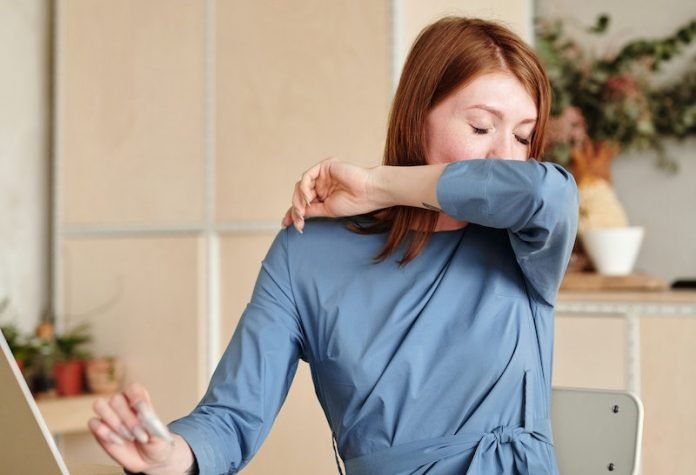
Scientists from the University of Michigan found that people are 1,000 times more likely to get COVID from the air they breathe than from surfaces they touch.
The research is published in the Journal of Exposure Science & Environmental Epidemiology and was conducted by Richard Neitzel et al.
In the study, the team tested air and surface samples around their campus. They used air pumps and swabs in various locales across the locked-down campus.
The settings included offices, classrooms, performance spaces, cafeterias, buses and a gym. However, the samples were taken during the pandemic lockdown, so these were relatively empty spaces.
The team also used information on campus COVID-19 infections to estimate the probability of infection associated with our environmental measurements.
They found the overall risk of exposure to the virus was low at all of the locations they measured.
The results suggest that there was a much higher risk of infection from inhalation than from contact with surfaces like door handles, drinking fountains, keyboards, desks, sinks and light switches.
In all, more than 250 air samples were gathered, of which 1.6% tested positive for the virus that causes COVID. Of over 500 surface samples, 1.4% were positive.
The riskiest setting was the gym, with positive indications found for 75% of air samples and 50% of all surface samples.
Most of the contaminated gym surfaces involved drinking fountain buttons; no samples taken from gym equipment turned up positive.
Overall, far fewer positive readings were found in office spaces or around computer keyboards, light switches, tabletops, microwaves, fridge handles or student desks.
But after stacking up positive samples against actual COVID cases on campus, the team found that the probability of getting COVID after exposure to airborne virus particles was roughly 1 per 100 exposures.
The researchers determined the probability of illness from a contaminated surface to be 1 for every 100,000 exposures.
They stressed that the findings reflect a time and place in which strict surface cleaning protocols were enforced, and when crowds were nonexistent.
The results suggest people should be more concerned about inhalation risks from the coronavirus than the risks from touching surfaces.
If you care about Covid, please read studies that almost 1 in 3 older people develop new health problems after COVID-19 infection, and vitamin D deficiency linked to severe COVID-19 and death.
For more information about Covid, please see recent studies about 4 new COVID variants in New York City wastewater, and results showing previous COVID-19 infection, but not vaccination, improves antibodies.
Copyright © 2022 Knowridge Science Report. All rights reserved.



